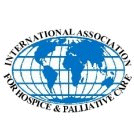Article of the Month
A Qualitative Study of Oncologists’ Approaches to End-of-Life Care
Authors: Jackson VA, Mack J, Matsuyama R, Lakoma MD, Sullivan AM, Arnold RM, Weeks JC, Block SD
Journal of Palliative Medicine 2008; 11(6): 893-906.
In this exploratory mixed method study, the authors examined how oncologists provided end-of-life care, and how this affected their job satisfaction and burnout. They interviewed 18 US oncologists who provided care to recently deceased patients, and used grounded theory to analyze the transcripts. Two types of oncologists were identified—approximately half of them viewed their role as encompassing both biomedical and psychosocial aspects of care (type I), and the remainder viewed their role almost exclusively in biomedical terms (type II).
Type I oncologists, who focused on the communication process as a central aspect of care, were more comfortable in discussing goals of care and making recommendations for patients and families. They were also able to clearly outline their communication approaches and to describe examples of specific patient encounters during the interviews. In contrast, type II oncologists did not seem to feel they could impact patients’ and families’ coping with the acceptance of death and made few recommendations. The authors also suggested that type I oncologists tend to have close relationships with patients, satisfaction with end-of-life care, and asked for and/or received collegial support. Importantly, type I oncologists appeared to have a lower burnout rate in terms of emotional exhaustion and depersonalization, and higher personal accomplishment than type II oncologists based on the Maslach burnout instrument.
Why I chose this article?
- As Dr. Charles von Gunten nicely pointed out in an accompanying editorial, the study results have practical implications for how palliative care specialists interact with oncologists. Type I oncologists tend to be skilled at communication, derive satisfaction from end-of-care life, and require limited palliative care team involvement, whereas type II oncologists may benefit from more input from the palliative care team to support their patients and families.
- This study highlights the use of qualitative methodology to explore the human experience in greater depth.
- A number of interesting research questions are raised
- How do oncologists working at US academic institutions differ from those working in other settings and those working in other countries? An oncologist-phenotyping project would be interesting.
- Does this conceptual classification apply to other types of physicians working with patients with advanced diseases? How about nephrologists, surgeons and even palliative care physicians?
- How can we train more type II physicians? How much does culture play a role?
Reviewer
David Hui, MD, MSc, FRCPC (Med Onc)
Clinical Research Fellow
Department of Palliative Care and Rehabilitation Medicine
MD Anderson Cancer Center
Email this page to a friend!
Top of Page |

